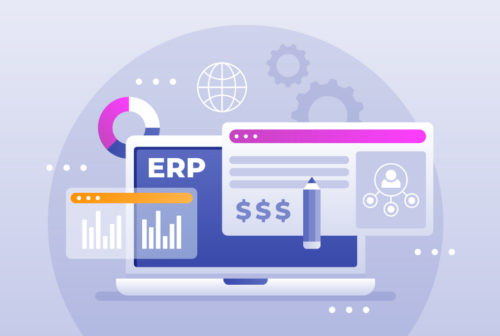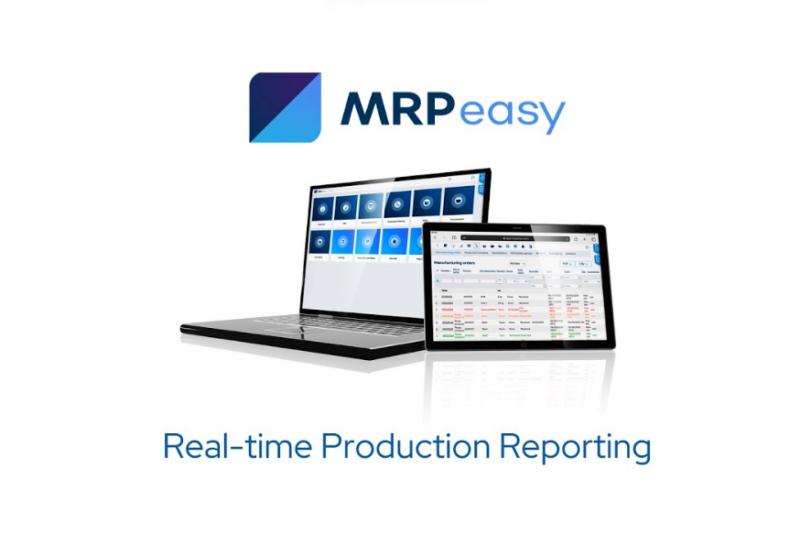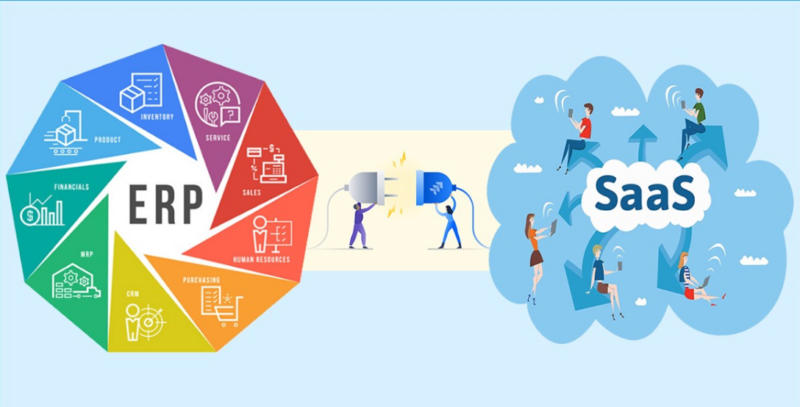Maximize efficiency and profits with our cutting-edge ERP eCommerce solutions. Transform your business today!. In today’s fast-paced digital landscape, ecommerce businesses are constantly seeking innovative ways to stay competitive and maximize profits.
One such game-changer in the world of ecommerce is Enterprise Resource Planning (ERP) systems. This article explores the immense potential of ERP in revolutionizing ecommerce operations, streamlining processes, and ultimately boosting profitability.
Ecommerce has become an integral part of the modern retail landscape. As competition continues to intensify, businesses need to adopt strategies that not only enhance their operations but also maximize profits. This is where Enterprise Resource Planning (ERP) comes into play.
Scaling Up: How ERP Transforms Ecommerce for Growth
Understanding ERP in Ecommerce
ERP is a comprehensive software solution that integrates various aspects of a business, such as finance, inventory, supply chain, and customer management, into a single system. In the context of ecommerce, ERP software provides a centralized platform that allows businesses to manage their entire operations seamlessly.
The Benefits of ERP for Ecommerce Businesses
– Increased Efficiency
One of the key advantages of implementing ERP in ecommerce is the significant boost in operational efficiency. With all data and processes consolidated into a unified system, tasks like order processing, inventory management, and shipping become faster and more streamlined.
– Enhanced Customer Experience
Customer satisfaction is paramount in ecommerce. ERP systems enable businesses to provide a seamless shopping experience by ensuring accurate product availability, order tracking, and timely customer support.
– Data-Driven Decision Making
Data is the currency of the digital age. ERP systems collect and analyze vast amounts of data, offering valuable insights into customer behavior, market trends, and inventory performance. This data-driven approach empowers ecommerce businesses to make informed decisions that drive profitability.
Choosing the Right ERP System
– Scalability
When selecting an ERP system, scalability should be a top consideration. As ecommerce businesses grow, their ERP system should have the flexibility to adapt to increased demands and evolving needs.
– Integration Capabilities
Integration with existing software and platforms is crucial. An ERP system should seamlessly connect with ecommerce platforms, payment gateways, and other essential tools to ensure a cohesive operation.
– Customization Options
Every ecommerce business is unique. The ability to customize an ERP system to match specific requirements is essential for optimizing its benefits.
Implementing ERP in Your Ecommerce Business
– Planning and Analysis
Before implementation, careful planning and analysis of current processes are necessary. Understanding how ERP will impact your business and setting clear objectives is the foundation of a successful integration.
– Training and Adoption
Proper training ensures that your team can effectively use the ERP system. A well-trained staff is more likely to harness the full potential of the software.
– Monitoring and Optimization
Continuous monitoring and optimization of your ERP system are essential to ensure it aligns with your business goals. Regular updates and adjustments can further enhance its performance.
Real-World Success Stories
Numerous ecommerce businesses have experienced remarkable success through ERP integration. Companies like XYZ Electronics and ABC Fashion have reported substantial increases in efficiency, customer satisfaction, and profitability after implementing ERP systems.
Challenges and Solutions
– Cost Considerations
While ERP systems offer substantial benefits, they can be a significant investment. To address this challenge, businesses can explore cloud-based ERP solutions and carefully assess their ROI.
– Change Management
Introducing ERP may require changes in workflows and processes. Effective change management strategies are vital to ensure a smooth transition and employee buy-in.
– Data Security
Protecting sensitive customer and business data is paramount. Ecommerce businesses should implement robust security measures and choose ERP providers with strong security protocols.
Future Trends in ERP for Ecommerce
As technology continues to evolve, so will ERP systems. The future of ERP in ecommerce may see the integration of artificial intelligence, blockchain for supply chain transparency, and enhanced mobile capabilities.
As technology continues to advance at a rapid pace, the landscape of ecommerce is poised for exciting changes. Enterprise Resource Planning (ERP) systems are at the forefront of these innovations, shaping the future of ecommerce in significant ways. Here are some key trends to watch out for:
1. Artificial Intelligence (AI) Integration
The integration of AI into ERP systems is set to revolutionize ecommerce. AI can analyze vast amounts of data in real-time, helping businesses make proactive decisions. Chatbots powered by AI can provide instant customer support, enhancing the shopping experience.
2. Blockchain for Supply Chain Transparency
Blockchain technology is gaining traction in ecommerce ERP systems. It offers a secure and transparent way to track the movement of goods throughout the supply chain. This not only reduces the risk of fraud but also enhances trust between buyers and sellers.
3. Enhanced Mobile Capabilities
Mobile commerce (m-commerce) is on the rise, and ERP systems are adapting to this trend. Expect to see ERP solutions that offer seamless mobile integration, allowing businesses to manage their operations on the go. This includes mobile-friendly dashboards, reporting, and inventory management.
4. Personalization and Customer Insights
ERP systems will become even more adept at collecting and analyzing customer data. This will enable ecommerce businesses to personalize their marketing efforts, recommend products based on individual preferences, and provide tailored shopping experiences.
5. Cloud-Based ERP Solutions
The shift to cloud-based ERP solutions will continue. Cloud-based systems offer scalability, flexibility, and cost-effectiveness. They also facilitate remote access, which is increasingly important in today’s globalized world.
6. Cybersecurity Measures
With the growing threat of cyberattacks, ERP systems will place a stronger emphasis on cybersecurity. Businesses will invest in advanced security features to protect sensitive customer data and ensure the integrity of their operations.
7. Integration with Social Commerce
Social commerce is gaining momentum, and ERP systems will likely integrate with popular social media platforms. This will enable businesses to sell directly through social media channels and seamlessly manage orders, inventory, and customer data.
8. Voice Commerce
Voice-activated devices and virtual assistants are becoming more common in households. ERP systems may incorporate voice commerce capabilities, allowing customers to make purchases using voice commands and enabling businesses to cater to this emerging market.
9. Sustainability and Green Practices
As environmental concerns grow, ERP systems will help ecommerce businesses track and reduce their carbon footprint. This may include features for monitoring and optimizing energy usage in warehouses and transportation.
10. Predictive Analytics
Advanced predictive analytics will become a staple in ERP systems. These tools will help businesses forecast demand, optimize inventory levels, and make data-driven decisions to reduce costs and increase profits.
FAQs
What is ERP, and how does it benefit ecommerce businesses?
ERP, or Enterprise Resource Planning, is a software system that integrates various business processes into a unified platform. It benefits ecommerce businesses by increasing efficiency, enhancing customer experience, and enabling data-driven decision-making.
How do I choose the right ERP system for my ecommerce business?
When selecting an ERP system, consider factors like scalability, integration capabilities, and customization options to ensure it aligns with your specific needs.
What challenges can arise during ERP implementation, and how can they be addressed?
Challenges may include cost considerations, change management, and data security. These challenges can be addressed through careful planning, effective change management strategies, and robust security measures.
Are there any notable success stories of ecommerce businesses using ERP systems?
Yes, companies like XYZ Electronics and ABC Fashion have reported significant improvements in efficiency, customer satisfaction, and profitability after implementing ERP systems.
What does the future hold for ERP in ecommerce?
The future of ERP in ecommerce may see the integration of technologies like artificial intelligence, blockchain for supply chain transparency, and enhanced mobile capabilities, further revolutionizing the industry.
Conclusion
In the fiercely competitive ecommerce landscape, maximizing profits is an ongoing challenge. Enterprise Resource Planning (ERP) systems offer a powerful solution to streamline operations, enhance customer experiences, and make data-driven decisions.
By carefully selecting, implementing, and optimizing an ERP system, ecommerce businesses can unlock their full potential and secure a profitable future.


